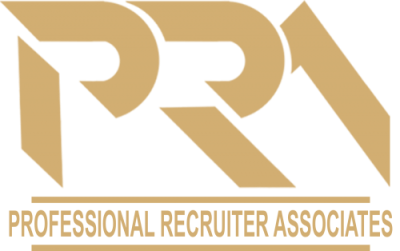Tips for Finding Your Next Role

If you’re among the millions of Americans recovering from a layoff, it can be a daunting challenge to jump back into job-seeking. For those looking to start fresh in 2021, here are some important tips to keep in mind.
TAKE TIME FOR SELF-REFLECTION
Ask yourself the following questions:
- What do I want to do?
- Why do I want to do it?
- How do I get it?
Consider the scope of your ambition. Really thinking about the job you want and why you want it will help you determine how hard you are willing to work to get it. This may result in longer periods of unemployment or financial burden, or simply requires the bravery to go after a job that may be a stretch for you. I encourage you to have confidence in yourself—if you think you can do it, don’t let the fact that you haven’t done it before hold you back.
Prioritizing mental health is also important. Part of self-reflection means giving yourself the necessary time to process what has happened, and taking time to mentally right the ship isn’t a sign of weakness, it’s a sign of strength. Don’t just dwell on mistakes you may have made in your prior role—as much as we tend to blame ourselves, things are not always our fault or within our control. Accepting this will go a long way towards being able to interview with confidence and a positive attitude.
MAKE YOUR FREE TIME AN ASSET
I recommend adding structure to your day by thinking of the job search as a personal project. Create a schedule and come up with rituals, like setting aside certain hours of the day specifically for job searching, updating your résumé and LinkedIn profile, or acquiring new skills or certifications.
If you land an interview, prepare the same way you would for an important project. Get to know the company you are interviewing with: who they are, what they do, how competitive they are in the market. During the interview, you want to gain a clear understanding of what would make a person successful in this position. An interview is a two-way process, and you are interviewing them as much as they are interviewing you. Is there an open-door policy? What does family leave look like? What will long-term remote working look like a year from now? These are important questions to ask.
DON’T TELL THEM WHAT THEY WANT TO HEAR
Never, ever say something just because you think the interviewer wants to hear it. Be honest about résumé gaps—hiring managers understand that layoffs happen. Be honest about what you know and what you don’t know—they already accepted your résumé based on your skills and experience. Now is the time to talk up that experience, not lie or embellish it.
Be confident. If you lack a necessary skill, be ready to articulate a plan on how you will close that gap. This shows that you are a self-starter, and that you’ve invested the time to learn about the position. If you were laid off, explain why. And if you’re entering a new field, explain why your skill set translates. Make sure to share your passion on why you want this job, but don’t be afraid to walk away if it’s not the right one.
In Conclusion: YOU’VE GOT THIS
Setting goals, investing in your family, getting exercise, and finding distractions when you feel like you’re hitting a wall can make a huge difference. I expect during these COVID-19 times, many people will be feeling dejected and want to give up, but I encourage you not to. Be smart, and don’t fixate on filling out mass applications. Be as patient as your needs will allow. Remember why you want the job and let that be your guiding light to seek out the positions you want.

Professional Recruiter Associates